KNOWLEDGESTREAM AT-A-GLANCE
Leveraging New Technologies for B2B Sales Excellence
ABSTRACT
How do top performing B2B sales leaders invest in their team's ability to consume new technology as part of their climb towards sales excellence. What has worked repeatedly? What have been the most painful lessons along the way?
PARTICIPANTS















OBJECTIVES
1. Major changes in B2B buying behavior: Distill relevant trends and industry examples of how past (and current) selling techniques fall below buyer expectations
2. What's important to sales leaders: Given this stage of buyer change, how do sales leader identify and prioritize key drivers of success?
3. Sellers' response to shifting buyer behavior: Categorize the types of changes sales have made in response, with an understanding of the range of impact and feasability
4. What's to come?: What do we need more of? Less of? to make buyer/seller interactions more effective for both sides.
End Date: Jul 17, 2018
CONTRIBUTIONS
ACTIVITY
84 Days
5 Themes
17 Contributors
543 Posts
137 Comments
84 Followers
OUTPUTS
4 Slide Deck
4 Video
THEME #1
How have your biggest sales challenges changed over the past 3-5 years?
THEME SUMMARY
Buyers are more empowered and emboldened with higher expectations than ever before.
- More choice: global marketplace of providers, increased ease of DIY solutions, technology has lowered barrier to entry in most industries creating many new players.
- Buying experience is a differentiation point: the proliferation of new sales methodologies, the amount of new entry-level sellers has created a wide quality gap in the buying experience
Buyers have a higher expectation of control and choice
Domestic and International Customers are more than willing to research options and do their own design work from a variety of competitors before you even know there is a requirement!
Global markets and new sales channels mean new opportunities as well but you need to adapt for the fast changing markets and players. Keep administrative activities under control, sales team need to focus on clients and prospectives
The wide quality gap in sales experience can create a competitive advantage
But process and technology have not only evolved strategic sales, it's made a huge difference with transactional. Hunter/Farmer has evolved to a range of ever more specialized roles for each stage of the funnel. The ecosystem of CRMs like salesforce, has produced accelerators like insidesales.com, and a whole range of gamification applications. Gamification is amped up social science, and this platform (Convetit) is a great example applied to market research.
the last 3-5 years have seen a proliferation of "solutions selling," and trendy / slick marketing and sales techniques. Whether in the guise of proposals, presentations, or software/hardware/X-as-a-Service, or even "inventing" problems in order to market the solution
More companies are willing to take on more projects in-house, creating yet another competitive threat to vendors
Domestic and International Customers are more than willing to research options and do their own design work from a variety of competitors before you even know there is a requirement!
My biggest surprise was - the degree to which customers embrace the self service approach that providers have pushed to customers - retail, B2B, B2C - it matters not.
Our reputation precedes us and it's now more important to be credible and authoritative through public forums and social media.
LinkedIn became more than a career platform, and social selling took hold. Top sales people, often working with marketing teams, got really good at merging corporate with personal branding and thought leadership, creating a more efficient and effective method for nurturing all those points of contact within a long-term sales cycle.
Tell a nice story and push the buyer to identify with your product. Be social, this is now the main sales channel, Facebook, Instagram, WeChat, Yupoo, VK are on the lead now based on your location. Use your authority and experts opinion to influence the buyers. Create the need.
THEME #2
How have the skills, intrinsic talents, attitudes, and motivations of your leading sales reps changed?
Increased comfort with data
Industry mastery
General Adaptability and openness to change
Leveraging new customer-focused technology
Seeing the big picture
THEME #3
Coaching: What challenges have you faced with coaching your reps?
THEME SUMMARY
Coaching and ongoing development of your sales team is critical to success in today's B2B sales environment.
- Coaching is different than managing
- Coaching requires thinking long-term over short
- Coaching requires commitment and a growth mindset
- Tools are available to assist
SURVEYS
Coaching is different than managing
It takes time to act as a coach. How many good managers have you encountered that have not been good coaches? Who trains managers to become good coaches? In a results-driven environment it takes special people to 'put an arm around someone's shoulder' and offer coaching.
It's good to remember the personal side of coaching. I've worked for super-efficient people that knew everything about the business but nothing about the people that worked for them.
Short vs Long-term thinking
Back to my sporting analogies. Do you buy the players at the top of their game and aim for short-term impact or the player that could develop and deliver 10 years of service?
Sadly, it's frequently assumed that once the initial training is conducted and a sales rep is successful that's all (s)he needs for continued success. A professional sports team wouldn't go without a coach for one minute. Why business organizations think or act as if it's not necessary is beyond me.
Commitment and mindset
The key to coaching - a way of engaging intentionally to develop others by asking challenging/relevant open-ended questions - is to have the trust and mutual buy-in of both coach and coachee.
One of the key values that I have in my organization is ownership and responsibility. This means that every rep is fully responsible for his or her own succes, actions and obviously accounts. The reason this is so important to me is because I believe ownership increases quality and speed.
Tools are available to assist
What has worked is a simpler approach where as a leader I shed any allusion to being an expert, and allowed myself to be taught by my team. In doing so the team became more vulnerable and open to learning, so I found an inexpensive sales training platform; https://rapidlearninginstitute.com/.
There are several coaching software to play with, https://www.capterra.com/sem-compare/mentoring-software?gclid=EAIaIQobChMIwbm_5rS-2wIViz8bCh1DWgjKEAAYBCAAEgJw5PD_BwE&;gclsrc=aw.ds.
THEME #4
What role does technology play in creating a Modernized sales team?
THEME SUMMARY
Sales technology has the ability to improve efficiency by automating repetitive tasks, such prospect list building, and effectiveness by providing new measurements and insight into rep performance.
- More tasks, activities, and process are possible to automate than ever before thus freeing up sales rep time to focus on customer priorities.
- New measurements, metrics, and automated analysis allow us to identify the sales activities that have the greatest impact on revenue generation and customer satisfaction.
- The explosion of new tools increases the risk of fatigue and burnout among end users and wasted investment.
SURVEYS
Prospect profiling and list building
For enterprise level teams practicing account based marketing, tools like Discover.org and LinkedIn navigator are critical
What tools could you not live without? Lead generation: LinkedIn Premium (but not Sales Navigator - overpriced, and not worth the difference between Premium. No real additional functionality or ability to prospect, yet.)
BEWARE: Tool overload and burnout
I am not going to argue that good technology is key to the success of modern day salesteams. But, tools and technologies are popping out of the ground like mushrooms and everything seems to be usefull and handy, but also takes time. Too many tools can also be a major distraction from actual selling.
I think that there are pitfalls to avoid when deploying resources to focus on data analytics. Most of the databases/apps I've seen are full of unusable data which you can't report on or can't verify. This usually happens because of time constraints or lack of agreed upon standards of data quality
Performance management and employee retention
I've found that it's critical to measure the effectiveness/yields and energy/activity of each sales person's "process" in a systematic way to ensure that complacency/distraction doesn't set-in, especially with those representing an established leadership brand that somewhat "sells itself."
Great technology makes things measurable. With a click of a button you can see the performance of a company, of a team and of an individual. You can also track the perfomance in every part of the pipe. You can easily and fasten than ever see what is going well and what elements need improvement
SURVEY RESULT: New client acquisition easiest to automate
The reason I voted for More new opportunities - new logo/client is because that is the element that is typically easiest to automate and replasce by software, so that is where technology can be the biggest enabler.
Although typically not automated, analytical solutions that look at pipeline data can help identify gaps to drive individual behavior change that improves the speed and probability of deals closing. I've looked at InsightSquared which integrates with salesforce as well as salesforce's own analytics.
THEME #5
Summary and Conclusion
THEME SUMMARY
Overall learnings
- Learnings
- Thank you


